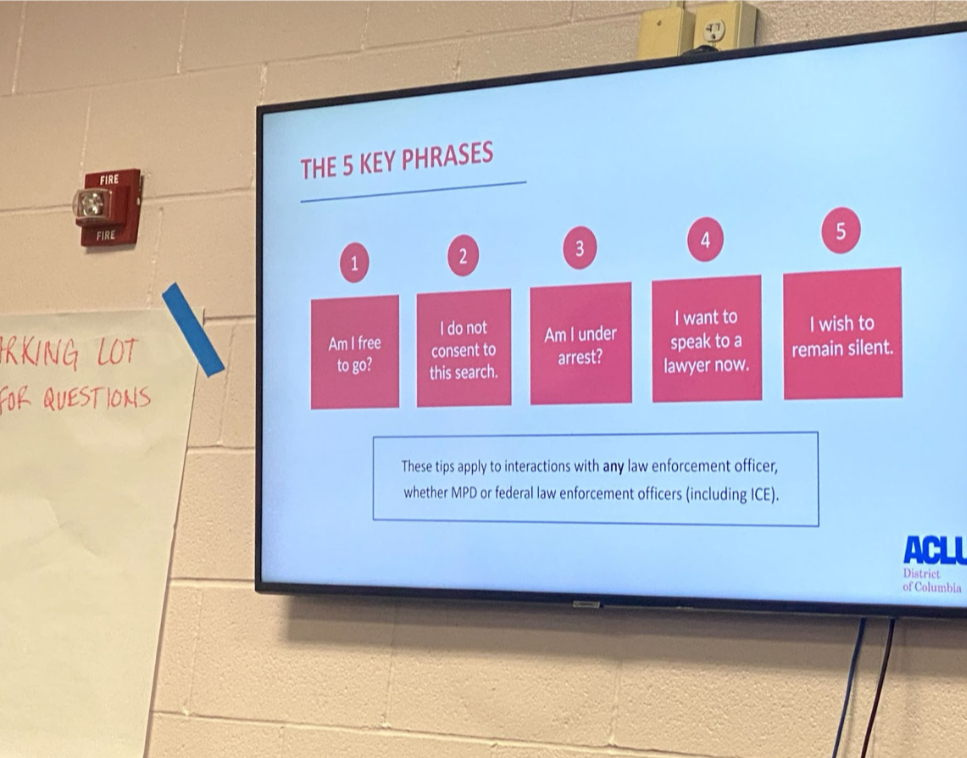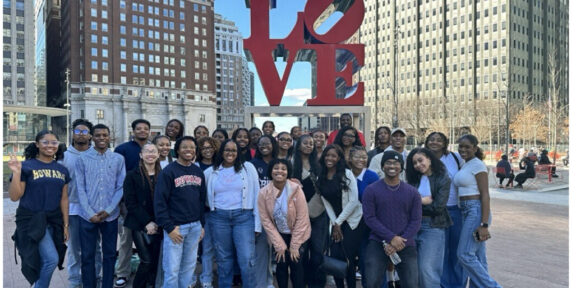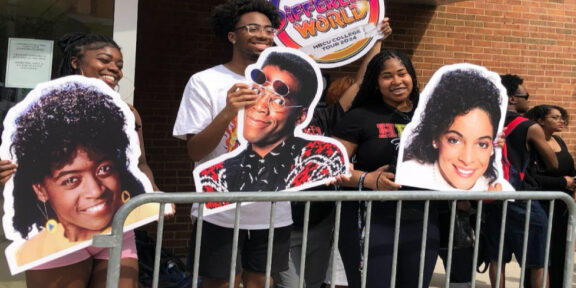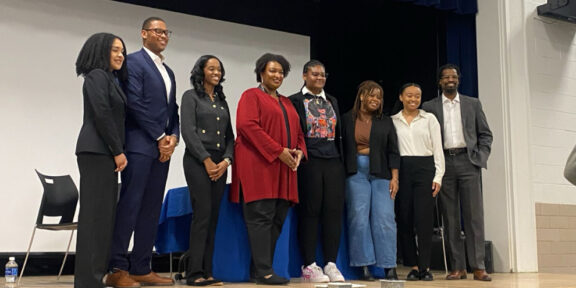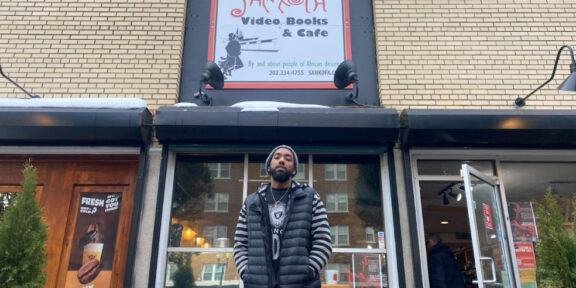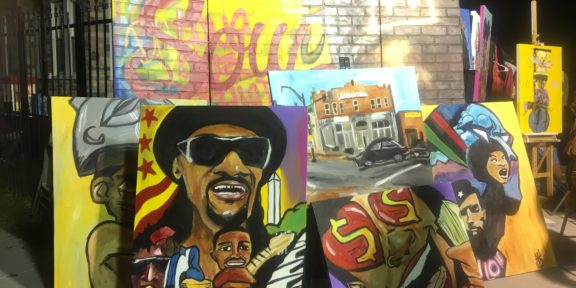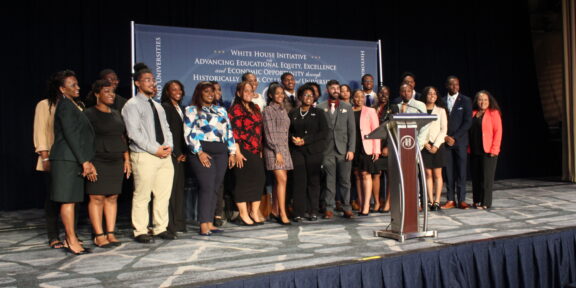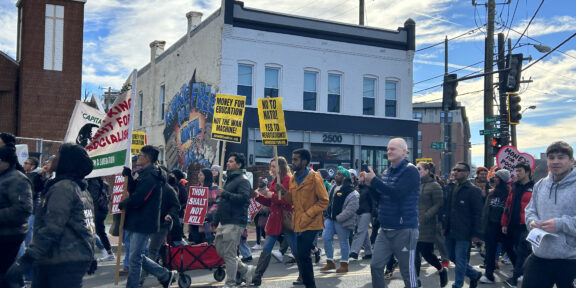By Kareema Bangura
Early last month, the District of Columbia Council passed Councilmember Brooke Pinto’s Secure DC Omnibus legislation in response to rising crime rates in the metro DC area.
According to a statement from Mayor Muriel Bowser, the bill will “build a safer DC by rebalancing our public safety and justice ecosystem in favor of safety and accountability.”
However, it has stirred debate among residents, who advocate for alternative strategies that prioritize community well-being and equity.
In response to the bill’s passing, Nikki Frazier, a resident of the Petworth neighborhood, organized an event at Emery Heights Community Center that allowed her community to learn about its different components.
The event also helped inform youth residents about their rights in the event of encounters with law enforcement.
“The policing in the neighborhood is very aggressive, and I wanted to give the members of the community an opportunity to learn what their rights are, especially since the Omnibus Crime Bill just passed,” said Frazier.
D.C. representatives from the American Civil Liberties Union presented a ‘Stop & Frisk’ guide, which provides navigation for scenarios with police..
“We didn’t think of this bill as a public safety bill, we thought of this bill as an abuse of power bill that would be eroding on people’s civil rights and civil liberties,” said Amber Taylor, deputy communications director at D.C. Branch of the ACLU.
Petworth residents also addressed components of the bill they felt were concerning, including the policy on Drug-Free Zones.
The policy implements the creation of drug-free zones, which are defined locations with harsher punishments for drug-related acts.
According to the ACLU, these zones often include schools, parks, and other areas frequented by children and families, with the goal of discouraging drug use and protecting vulnerable populations.
“Once a person is inside of these zones, MPD officers can ask them to disperse,” Taylor said. “We also know that this is opening the door for racial profiling and abuse of power.”
In a statement released by the ACLU, D.C. Policy Counsel Melissa Wasser asserts, “We deserve to be safe from crime and from abuse of power. Allowing officers to escape accountability and to harass people in designated zones will not make D.C. safer.”
ACLU-DC present key phrases to Petworth youth at Emery Heights Community Center on March 21, 2024, for interactions with law enforcement. (Kareema Bangura/ HU News Service)
Phrases such as “I wish to remain silent” and “I do not consent to this search” were suggested for the Petworth community to follow if engaging with law enforcement officers.
The ACLU representatives emphasized that circumstances under which police can engage with community members may alter once within “drug zones.”
“The Secure DC Bill was definitely a smack in the face for all the work we’ve been doing over the years, but it also made me think about pivoting,” said event attendee and community member Charnel Chaney.
Chaney, who co-founded the Healing Outlet, has used the skills she learned through the union’s Know Your Rights Training to give back to her community.
The Emery Heights Community Center is on Georgia Avenue. Nikki Frazier hosted a ‘Know Your Rights’ event with the American Civil Liberties Union for the Petworth community at the center. (Kareema Bangura/HU News Service)
According to Chaney, the outlet served as a space for Ward 8 residents to connect, heal, and obtain resources to combat violence.
“Person-to-person, not system-to-system, I think that’s one way that we can start the shift and make the community safer,” said Chaney.
The Petworth residents are organizing to ensure their rights are being upheld.
“It’s all about the community coming together and organizing so we can make sure that the police are serving us, and we’re not at their mercy,” said Frazier.


